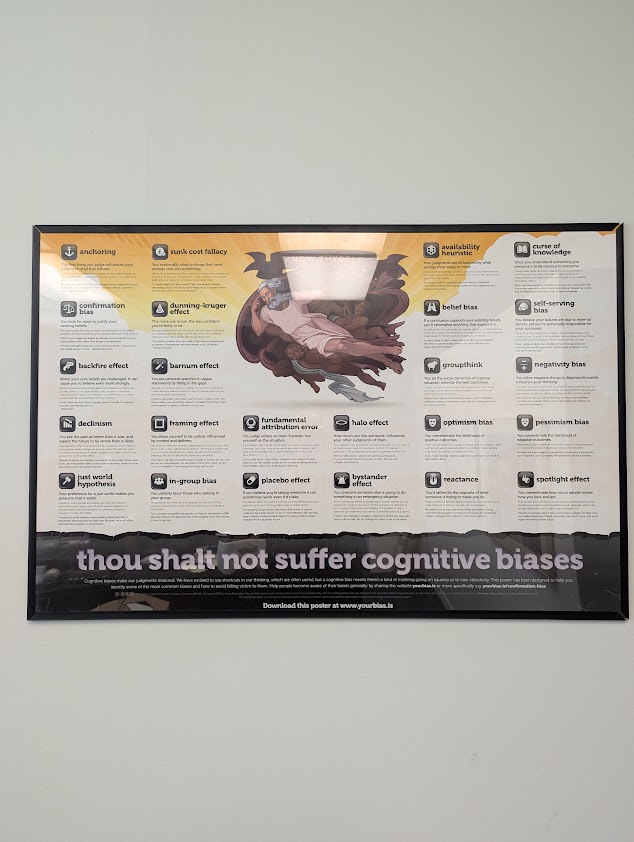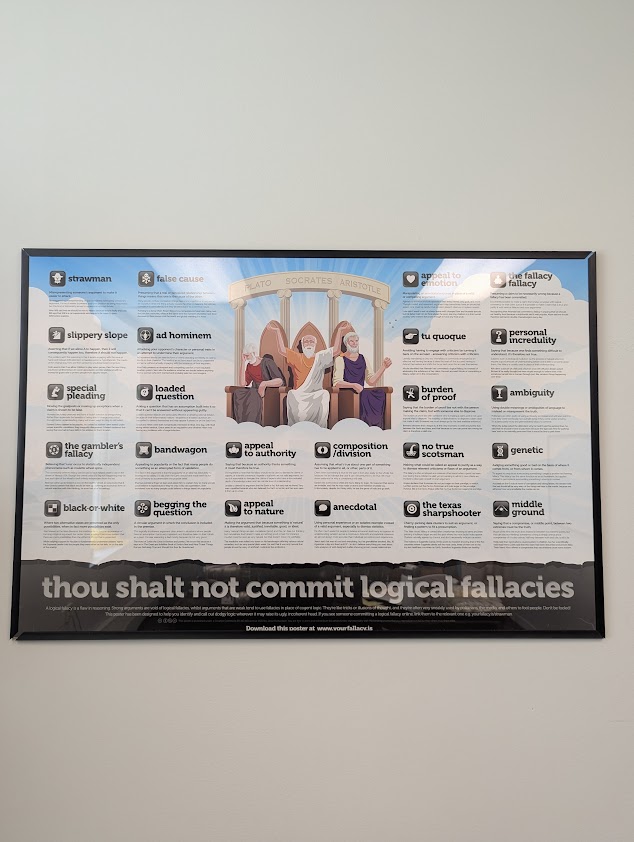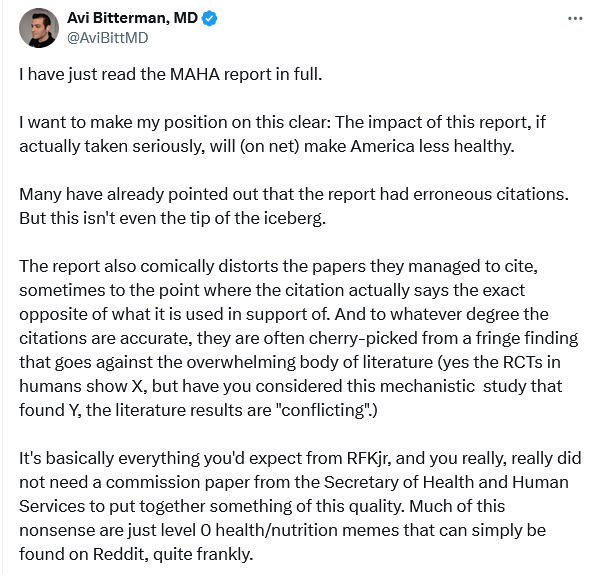WH-The-MAHA-Report-Assessment.pdf (7.4 MB)
At least they care about microplastics. If he takes action against the companies, that more than makes up for everything else (on RFK’s end). RFK is the one good decision the administration made (as Jessica Taylor also mentions)
[it has been really hard to trust Republicans on anything for a long time though]
Right. So if we die because the admin. obstructed vaccine updates and development, at least we’ll die with fewer plastics. Good priorities. Longer term, since the scientific research infrastructure has been devastated, longevity research will be severely set back, the good side of that will be that with shorter lifespans there is less time to accumulate plastics, whew! Only good news as far as I can see. I look forward to our short and sickly, but plastic-free lives!
Can we keep the politics out of the discussion?
Have you seen the title of this post?
There is increasingly more and more private investment in the longevity space.
I really do wish they didn’t remove funds from NIH.
You know, I was prepared for this to be batshit insane and full of conspiracy theories, but I can actually get on board with a lot of it. Not sure if that reflects well on me or not, haha. However, if you take a step back, the rates of childhood obesity, insulin resistance in adolescents, rising rates of dementia, rise in chronic diseases, and still lots of (preventable) deaths from ASCVD - something has clearly gone very wrong with the current system. So continuing with the status quo seems incredibly risky. We always talk about the risks of doing something drastic, but I would argue that we’ve actually being making a LOT of drastic changes over the last few decades - most of it without really appreciating it. So I’d say the risk of NOT acting right now is very high. If we continue this way, the Wall-E picture of humanity looks more realistic!
The report identifies ultra processed food as a major cause, which I believe is accurate. 70% of daily caloric intake coming from UPFs is wild. As we know, it “breaks” your normal appetite regulation mechanisms, tricks you into over-eating, and doesn’t provide as many nutrients as whole foods. I think the report is very accurate in terms of the history of why UPFs were developed, and how the current system is broken.
It also identifies chronic stress, poor sleep, physical inactivity etc as causes of poor health - all of which are absolutely true IMO. For example, look at this UK study which showed 70% of school kids feel worse after using social media, and 50% wish they didn’t even have Internet: Almost half of young people would prefer a world without internet, UK study finds | Internet | The Guardian
As Jonathon Haidt points out in the Anxious Generation book, this is like an unprecedented social experiment which was carried out on us, without informed consent, in the name of tech company profits. Parents with full time jobs, parenting outsourced to devices, kids being indoors all the time, huge pressure from school and education. It’s a re-wiring of childhood.
I’m not an expert on the neurodevelopment stuff, but if the figure of 1/31 being autistic, 10% having ADHD is true, that is also a stunning statistic. 25% of girls having a major depressive episode in the past year is also shocking. Suicide ideation 30%. 73% reporting loneliness. 15% of young men with zero close friends. They are all rising, which again speaks to the massive risk of not taking drastic action IMO. What they write about corporate influence of children’s internet experience is also true - they get kids addicted and captured early, then they’d sold on the UPFs and everything else in the name of profit.
If they can accomplish just this one thing below, it will be an incredible accomplishment:
- The American healthcare system thrives when disease is prevented and reversed, not just“managed” in a sick-care system.
This is the Attia “medicine 2.0” and “medicine 3.0” mantra. There are so many low-hanging fruit. For example, most ASCVD is preventable, and we already have the means. If you take care of ASCVD, I’d be wiling to bet that dementia and other causes of death would also lower.
It’s going to require a total re-wiring of the system - from education, to the way research is funded and carried out, and also economic incentives for companies and citizens.
Regarding research, this part from the report is interesting:
A BMJ analysis found that industry spent over $60 billion on drug, biotechnology, and device research in nutrition science; by comparison, the government spends an estimated $1.5 billion on nutrition research. Concerningly, industry-funded nutrition research may bias conclusions in favor of sponsors’ products.
So while I am baffled by this administration cutting funding all over the place, there does at least seem to be some sense of strategy here.
As for microplastics, PFOAs etc, I really don’t know how much harm they cause. However, I am still kinda alarmed that not a single living organism, breast milk sample or placenta in the world doesn’t have some level of these things. Again, that is because we allowed these corporations to contaminate everything - again, without our knowledge, informed consent. We became unwilling, unpaid, lab rats. In fact, we paid them!
The only conspiritard stuff I can find is about electromagnetic waves, but it’s very weakly worded. Vaccines just calls for more evidence. And what they write about “capture” of medical journals and medical training by corporations is pretty damn accurate in my experience. Same for capture of news agencies. How can journalists criticise pharma companies when they are one of the biggest industries paying for advertising on the same outlets?
some press analysis of it (for those who don’t want to read the full report):
I generally agree with what you’ve said here.
I was hopeful of Kennedy increasing funding into health to be honest, even if it was a restructuring of where funding was given. Hopefully this is addressed…
You really had to link Fox News in there to be impartial ![]()
But authors and publishers of at least four studies listed in the original document told AFP they or their organizations were credited with papers they did not write – or that never existed.
Noah Kreski, a Columbia University researcher listed as an author of a paper on adolescent anxiety and depression during the Covid-19 pandemic, told AFP the paper is “not one of our studies” and “doesn’t appear to be a study that exists at all.”
Columbia University epidemiologist Katherine Keyes, who was also listed as an author of the supposed JAMA study, told AFP she does research on the topic but does not know where the statistics credited to her came from, and that she “did not write that paper.”
Guohua Li, another Columbia University professor apparently named in the citation, said the reference is "totally fabricated" and that he does not even know Kreski.
AFP also spoke with Harold Farber, pediatrics professor at Baylor College of Medicine, who said the paper attributed to him “does not exist” nor had he ever collaborated with the co-authors credited in the original MAHA report.
Similarly, Brian McNeill, spokesperson for Virginia Commonwealth University, confirmed that professor Robert Findling did not author a paper the report says he wrote about advertising of psychotropic medications for youth.
A fourth paper on ADHD medication was also not published in the journal Pediatrics in 2008 as claimed, according to the journal’s publisher, the American Academy of Pediatrics.
So they used AI to create made up sources for this report, probably not intentionally depending on who did it.
Yes - it seems the one remaining HHS employee is just throwing things into CHatGPT and then publishing it. ![]()
They had a deadline and it was 11:54 PM already. Had to be done.
The problem is that getting to scientific truth is hard and requires subtlety and avoiding a top down approach.
There are some good points in the report and some where they get the science wrong.
The Trump administration’s strengths don’t seem to be in implementation, but we will just have to see.
I read an article today in the independent (UK newspaper) which looked at Liver injury from dietary supplements which misreported various old papers that themselves were a bit clickbaity. This was dressed up as news.
Such is life.
Yes. They’re using CHATGPT to generate their reports using prompts that show the results they want to show. CHATGPT is making up studies to support their viewpoints. Total sh!show.
To test the theory out, I too made a research paper that shows green Skittles make people live longer and CHATGPT made up a dozen studies to support it. This isn’t science. It’s outright lies and AI delusions.
And so it begins… or continues.
An old saying comes to mind Bull $h1t baffles brains
A flood of BS is more than many brains can handle so they just go along with the headlines that correspond to their beliefs. The classic echo chamber for mass manipulation is getting “better” with the help of AI.
We humans have a plethora of biases
Until one becomes a bit more self aware and recognize a few of ones own biases, it’s tough to navigate the world in a rational manner. To help me I have 2 posters right in front of my desk. I’ve checked them a couple times a week for the past 4 years. And I still fail at managing my biases because a few of them are “comfort” biases.


Related to this, we have to wonder whether AI will enter some sort of doom cycle of hallucination. There are a LOT of papers being published, right now, which are written by AI, and also peer reviewed by AI. And I say this as an Editor of some journals where we are inundated by fairly obvious AI-written papers. Now, are the underlying experiments/facts real, and the authors simply used LLMs to write/improve the text? That is the part I don’t know.
I also do know that many peer reviewers simply slap the PDF into a LLM and send back the report, so a lot of stuff is being published without proper oversight. And even then, the human reviewers do a pretty shit job a lot of the time. I get maybe 1-2 review requests every day, and I say no to the majority, unless it’s a really good journal. Reviewers get tons of requests, and from the Editor dashboard I often see people who have been asked to review 30+ studies in a month from a particular publisher.
It will definitely become interesting as these become incorporated into the “knowledge base” and training material and thus become established facts. For example, this MAHA document will be influential, and will certainly be archived, taken as fact by many, used as training data etc.
Pre publication peer review was having problems before AI came along. I think some mechanism of post publication review will need to develop probably with paid reviewers who personally consider things even if they use AI.
There is an issue, however, about AI merely emphasising the conventional wisdom.


